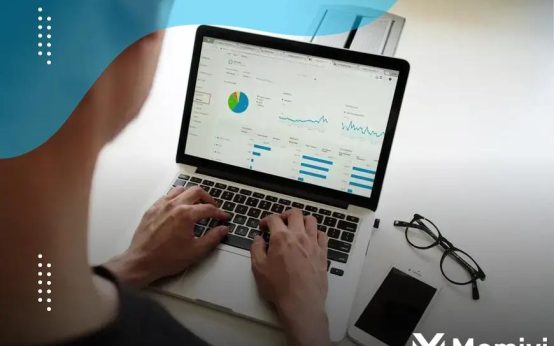In this article, we’ll explore effective strategies to manage and overcome your debt. By creating a budget, exploring consolidation, and adopting healthier financial habits, you can regain control of your financial future. Stay with us to uncover actionable tips under each heading.
Understanding the Root of Your Credit Card Debt
Oftentimes, credit card debt accumulates due to a variety of underlying factors. Identifying these factors is crucial in crafting an effective repayment plan. One of the primary reasons people find themselves in debt is overspending. It begins with a few small purchases, but over time, the expenses add up, creating a significant financial burden.
Another contributing factor can be medical emergencies or unforeseen expenses, which can strain finances significantly. When such emergencies arise, credit cards can seem like the easiest way out, although this could compound debt issues if not managed well. As we strive to understand the root cause of credit card debt, it’s essential to recognize and address the behavioral and situational factors involved.
Impulse buying and emotional spending are other common culprits. Many use credit cards to live beyond their means or to cope with stress by purchasing non-essential items. Recognizing these spending habits is the first step toward rectifying them. It’s also vital to consider the systemic issues that might lead to debt, such as loss of income due to job loss or economic downturns that impact how you manage money.
By understanding these root causes, we can better target our strategies to address specific behaviors and financial pressures, ultimately paving the way for improved financial health.
Creating a Practical Budget and Repayment Plan

To effectively tackle your credit card debt and improve your financial standing, developing a practical budget and repayment plan is critical. Start by listing all your expenses and categorizing them into fixed expenses, like rent, and variable expenses, such as dining out. You will want to track your spending patterns for at least a month to understand your financial flow. Focus on differentiating between needs and wants. This helps in trimming down unnecessary expenses that could otherwise be redirected towards debt repayment.
Once your spending habits are clear, establish a realistic budget that prioritizes essential expenses and allocates funds towards debt repayment. One of the effective strategies is the 50/30/20 rule, where 50% of your income goes to necessities, 30% to wants, and 20% to savings and debt repayment. Tailor this structure to include more for debt if needed.
In parallel, evaluate your debt. List each credit card balance, interest rate, and minimum payment amount. This will form the backbone of your repayment strategy. Consider employing the debt snowball method, paying off the smallest balances first for quick wins, or the avalanche method, which targets high-interest debt first to save on total interest paid over time.
No plan is foolproof without a form of accountability. Set regular check-in periods, perhaps monthly, to assess your adherence to the budget and make necessary adjustments. If your financial picture is overly complex, consulting a financial advisor might be beneficial to further refine your approach.
Exploring Consolidation and Professional Help
When dealing with credit card debt, consolidation can be a strategic move. It involves combining multiple debts into one, often with a lower interest rate. This approach simplifies payments and can reduce your monthly financial burden. Balance transfers and personal loans are common methods for consolidation. Ensure you understand the terms and confirm that the new arrangement will actually save money over time.
Seeking professional help should not be overlooked. Credit counseling services offer expert advice on managing debt and can help create a customized repayment plan. These services may also assist in negotiating better terms with creditors. Look for non-profit organizations that provide affordable and reliable guidance.
Another option is a debt management plan (DMP). With a DMP, a third party manages your payments while you may enjoy reduced interest rates or fees. However, participation might require closing your credit card accounts, impacting your credit temporarily.
Understanding these options helps you make informed decisions about tackling your credit card debt. Opt for solutions that align with your financial situation and long-term goals, offering sustainable paths to reducing debt and improving your financial health.
Building Healthy Financial Habits for the Future

One of the fundamental steps in tackling credit card debt effectively is to build healthy financial habits that will support you in staying on the right track. Creating these habits involves cultivating a mindset focused on financial literacy and discipline.
Start by automating your savings and setting specific goals. This ensures that a portion of your income goes directly toward savings without temptations to spend. Over time, you’ll watch your savings grow, which can be very motivating.
Next, make it a habit to regularly review and monitor your spending patterns. Using apps and tools can provide insights into where your money goes each month. Identify unnecessary expenditures that you can cut back on, which can help redirect funds to paying off debts.
It’s also important to prioritize paying off high-interest debts. This habit helps in reducing the amount of interest you pay over time, freeing up more funds for savings or other important needs.
Another habit to develop is the practice of living below your means. Avoid impulse purchases and always consider whether an expense is necessary before making it. By living within your financial limits, you can build a buffer for unforeseen expenses.
Additionally, cultivate the habit of updating and adjusting your budget regularly as your financial situation changes. This ensures that you are always aware of what’s happening with your money.
Finally, consider the value of continued learning. Educate yourself about financial matters through books, workshops, or online courses. Expanding your knowledge can empower you to make better financial decisions, securing your financial future. With these habits, you are setting the stage for a stable and improved financial health.



 Demystifying the UK’s ‘Great Wealth Transfer’: What It Means for Young People. <p class='sec-title' style='line-height: normal; font-weight: normal;font-size: 16px !important; text-align: left;margin-top: 8px;margin-bottom: 0px !important;'> Demystifying the UK's 'Great Wealth Transfer' reveals its impact on future generations. </p>
Demystifying the UK’s ‘Great Wealth Transfer’: What It Means for Young People. <p class='sec-title' style='line-height: normal; font-weight: normal;font-size: 16px !important; text-align: left;margin-top: 8px;margin-bottom: 0px !important;'> Demystifying the UK's 'Great Wealth Transfer' reveals its impact on future generations. </p>  Understanding Your UK Credit File: What’s on It and How to Fix Errors. <p class='sec-title' style='line-height: normal; font-weight: normal;font-size: 16px !important; text-align: left;margin-top: 8px;margin-bottom: 0px !important;'> Learning the ins and outs of a UK credit file will help you make informed financial decisions. </p>
Understanding Your UK Credit File: What’s on It and How to Fix Errors. <p class='sec-title' style='line-height: normal; font-weight: normal;font-size: 16px !important; text-align: left;margin-top: 8px;margin-bottom: 0px !important;'> Learning the ins and outs of a UK credit file will help you make informed financial decisions. </p>  The UK’s Cost of Education: A Breakdown of School Fees and Saving for the Future. <p class='sec-title' style='line-height: normal; font-weight: normal;font-size: 16px !important; text-align: left;margin-top: 8px;margin-bottom: 0px !important;'> In this article, we will delve into various aspects of educational costs in the UK, offering insights into tuition, living expenses, and potential financial aid options. </p>
The UK’s Cost of Education: A Breakdown of School Fees and Saving for the Future. <p class='sec-title' style='line-height: normal; font-weight: normal;font-size: 16px !important; text-align: left;margin-top: 8px;margin-bottom: 0px !important;'> In this article, we will delve into various aspects of educational costs in the UK, offering insights into tuition, living expenses, and potential financial aid options. </p>